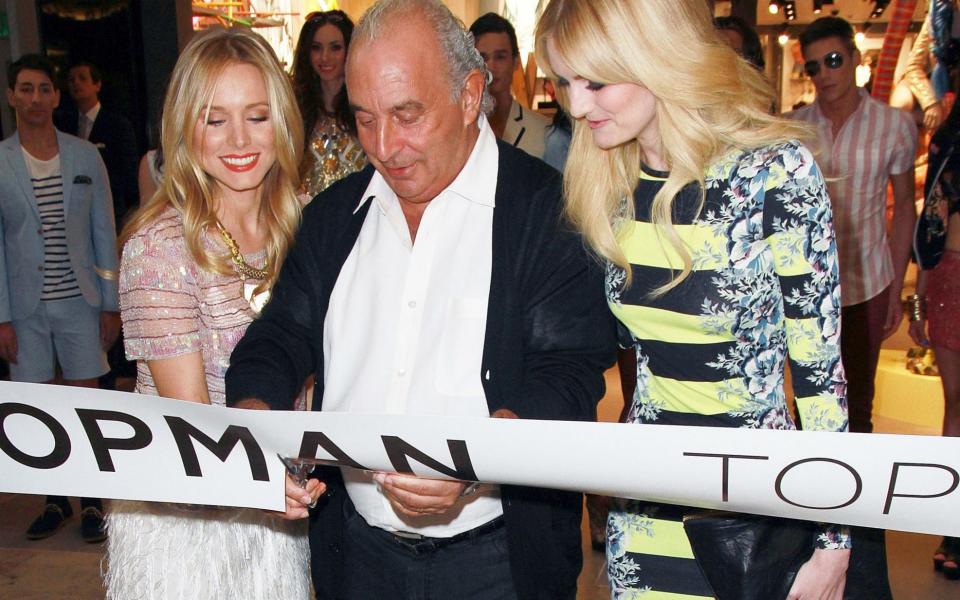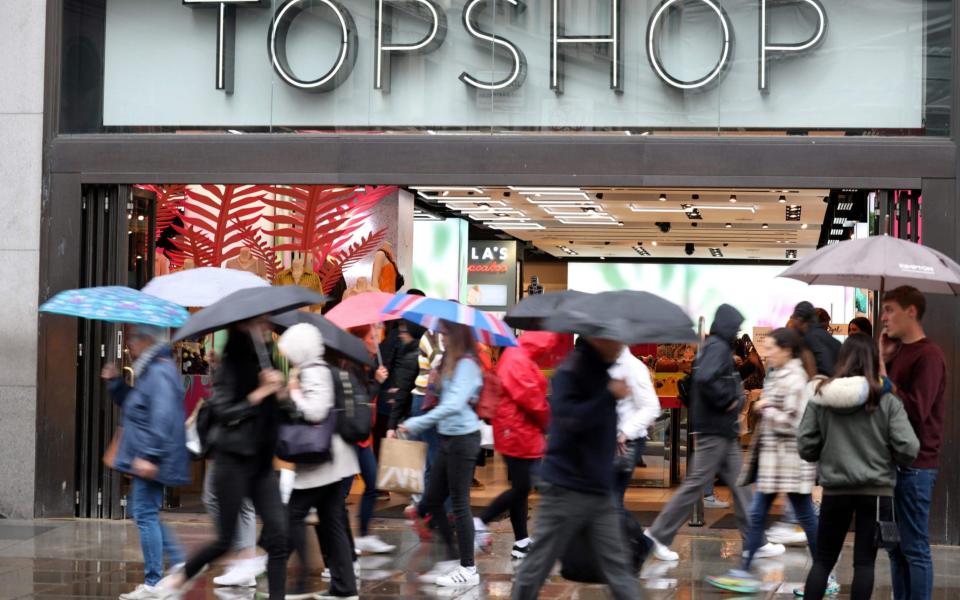Philip Green's retail empire on the brink with 13,000 jobs at risk

Sir Philip Green's retail empire is poised to formally appoint insolvency specialists as early as Monday, putting 13,000 jobs at risk.
The company, which owns a stable of brands including Topshop, Dorothy Perkins and Burton, said it was exploring “a number of contingency options” after being forced to shut hundreds of stores in lockdown.
An administration would bring down the curtain on the controversial high street career of one of Britain's most famous businessmen, which culminated with the BHS scandal and sexual assault allegations.
A break-up of Arcadia is also likely to spark a bidding war. Sports Direct tycoon Mike Ashley has already told ITV News that he is interested to take over all eight brands. Retail pundits believe online rival Boohoo will also throw its hat in the ring.
One of the options on the table is a so-called light-touch administration recently deployed by ailing Debenhams, whereby management continues to run the business under the supervision of administrators.
Advisers at Deloitte are being lined up after Arcadia failed to secure an emergency £30m loan. The firm was first drafted in to help with a turnaround of the business in January 2019.
The group, which has more than 500 shops, will continue to sell its wares and plans to reopen its shops when restrictions are lifted next week.
Richard Lim, chief executive at Retail Economics, said: “Efforts to turn around the business appear to have faltered with the impact of the pandemic too significant a challenge for the once much-loved retailer.
"However, its demise has been accelerated because of an online proposition that falls way behind that of their competitors. Years of underinvestment in digital has severely restricted their ability to trade successfully through this hugely difficult period.”
Loyal shoppers also defected over the years to the likes of Primark, Zara, Asos and Boohoo. The retailer is now at the bottom of the top 10 UK clothing players after being fourth in terms of market share just five years ago.
"If this business does eventually fail, it will leave gaps across many of our high streets where they have occupied shops for decades,” Mr Lim added.
In its most recent accounts for the year to 1 September 2018, Arcadia posted a £93.4m pre-tax loss compared with a £164.6m profit for the previous 12 months. Sales dipped 4.5pc to £1.8bn.

Sir Philip bought the chains in 2002 for £850m and expanded them further overseas, and took Topshop - the jewel in the crown - to the US and China.
He became known as the "king of the high street" for his shrewdness of buying and selling businesses. At the height of its success, the company paid his wife Lady Christina (Tina) Green £1.2bn in dividends. She is the ultimate owner of the business.
Arcadia went ahead with a company voluntary arrangement last year that led to 50 store closures and rent reductions on property, and struck a deal with the pensions watchdog to put cash into the company's pension schemes.
Sir Philip, who lives in Monaco, faced controversy over the pension scheme after he sold his previous business BHS, the department store, to Dominic Chappell for £1 in 2015.
BHS collapsed a year later, with the loss of 11,000 jobs and a pension deficit of £571m. He eventually reached a deal with the Pensions Regulator to inject £363m into that scheme, but MPs branded him a “billionaire spiv” and voted to strip him of his knighthood in a symbolic move.
A collapse could spell trouble for Arcadia's 9,500 pension holders given the fund's estimated £350m black hole on a buyout basis.
In a deal with the Pensions Regulator last year, trustees of Arcadia's pension schemes were granted security over £210m worth of assets by the company. They include Corinthian House on Tottenham Court Road, which is up for sale, and the property at 214 Oxford Street, both in central London.
Sir Philip's wife agreed to pump £100m into the schemes over three years while Arcadia said it would inject a further £75m. When the pandemic hit, Arcadia paused its payments for six months.
The company said: "The forced closure of our stores for sustained periods as a result of the Covid-19 pandemic has had a material impact on trading across our businesses.
"As a result, the Arcadia boards have been working on a number of contingency options to secure the future of the Group’s brands. The brands continue to trade and our stores will be opening again in England and ROI as soon as the Government Covid-19 restrictions are lifted next week."
In more high street pain on Friday, Jaeger said it will close 13 stores and cut 103 jobs a week after falling into administration. The fashion retailer was placed into administration last week by billionaire Philip Day. It now has 63 sites and 244 staff.
